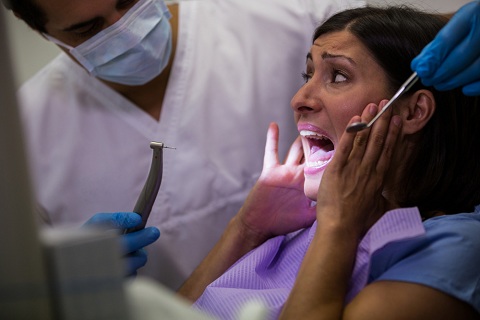Wisdom teeth, also known as third molars, are the last set of teeth to emerge, usually appearing in late adolescence or early adulthood. The extraction of wisdom teeth is a common procedure, often necessary to prevent dental complications such as overcrowding, impaction, or infection. Understanding the healing process is crucial for proper aftercare and recovery. This article will explore the typical healing timeline for wisdom teeth extraction, factors influencing recovery time, stages of healing, and important aftercare tips.
Healing Timeline
The healing time for wisdom teeth extraction can vary depending on the complexity of the surgery and the individual’s health. Generally, the healing process follows this timeline:
- First 24 Hours:
- Clot Formation: Blood clots form in the extraction sites, which is essential for healing.
- Symptoms: Swelling, mild bleeding, and discomfort.
- 2 to 3 Days Post-Extraction:
- Reduction in Swelling: Swelling typically peaks within 24-48 hours and then starts to decrease.
- Symptoms: Bruising may appear, and pain management is crucial.
- 1 Week Post-Extraction:
- Tissue Repair: The initial phase of soft tissue healing.
- Symptoms: Stitches (if used) may be removed or begin to dissolve; less swelling and discomfort.
- 2 Weeks Post-Extraction:
- Major Healing: Most soft tissue healing occurs within this period.
- Symptoms: Significant reduction in discomfort and swelling.
- 1 Month Post-Extraction:
- Bone Healing: The underlying bone begins to heal more extensively.
- Symptoms: Minor tenderness may persist, but most normal activities can be resumed.
- 3 to 6 Months Post-Extraction:
- Complete Healing: The jawbone typically heals completely within this period.
- Symptoms: Full recovery with the bone remodeling and no more tenderness.
Factors Affecting Healing Time
Several factors can influence the healing time of wisdom teeth extraction:
- Complexity of Extraction: Impacted teeth or complicated extractions may take longer to heal.
- Age and Health: Younger, healthier individuals often heal faster than older adults or those with underlying health conditions.
- Smoking: Smoking can delay healing and increase the risk of complications such as dry socket.
- Postoperative Care: Adhering to aftercare instructions can significantly impact recovery time.
Stages of Healing
The healing process after wisdom teeth extraction typically progresses through three stages:
- Inflammatory Phase (First 3 Days):
- Symptoms: Pain, swelling, and clot formation.
- Care: Follow postoperative care instructions, use ice packs, and manage pain with prescribed or over-the-counter medications.
- Proliferative Phase (1 Week to 1 Month):
- Symptoms: Decreased swelling and pain, tissue repair.
- Care: Maintain oral hygiene, avoid strenuous activity, and eat soft foods.
- Remodeling Phase (1 to 6 Months):
- Symptoms: Bone healing and complete recovery.
- Care: Regular dental check-ups and maintaining good oral hygiene practices.
Aftercare Tips
Proper aftercare is essential for a smooth recovery after wisdom teeth extraction. Here are some guidelines to follow:
- Rest: Take it easy for the first few days and avoid strenuous activities.
- Ice Packs: Apply ice packs to the cheeks to reduce swelling during the first 24 hours.
- Pain Management: Use prescribed pain medications or over-the-counter pain relievers as directed.
- Oral Hygiene: Gently rinse your mouth with warm salt water starting 24 hours after surgery, and avoid brushing near the extraction site.
- Diet: Eat soft foods such as yogurt, applesauce, and mashed potatoes. Avoid hard, crunchy, or spicy foods.
- Avoid Smoking and Alcohol: These can delay healing and increase the risk of complications.
- Follow-Up Appointments: Attend all scheduled follow-up visits with your dentist or oral surgeon.
Signs of Complications
While most wisdom teeth extractions heal without issues, be aware of signs of complications:
- Dry Socket: This occurs when the blood clot that forms in the extraction site becomes dislodged or dissolves before the wound has healed. It can cause severe pain and delay healing. To prevent dry socket, avoid drinking through straws, smoking, or rinsing your mouth vigorously for the first few days after surgery.
- Infection: The extraction site can become infected, leading to pain, swelling, and sometimes fever. Good oral hygiene and following your dentist’s care instructions can help prevent infection. In some cases, antibiotics may be prescribed.
- Bleeding: Some bleeding is normal, but excessive or prolonged bleeding can be a concern. Applying gauze and biting down gently can help control it. If bleeding persists, contact your dentist.
- Swelling and Bruising: Swelling and bruising around the extraction area are common and typically peak two to three days after the procedure. Applying ice packs to your face for the first 24 hours can reduce swelling.
- Nerve Injury: There’s a small risk of nerve injury, which can cause numbness or tingling in the tongue, lower lip, chin, teeth, and gums. This is usually temporary, but in rare cases, it can be permanent.
- Jaw Stiffness and Difficulty Opening Mouth: This can happen as a result of the swelling and muscle stiffness. It typically resolves within a week but can be managed with gentle jaw exercises as recommended by your dentist.
- Sinus Problems: In some cases, particularly with upper wisdom teeth, removal can cause an opening into the sinus cavity, leading to sinus pain or infection. If this occurs, your dentist will provide specific care instructions.
- Damage to Adjacent Teeth: Sometimes, the adjacent teeth can be affected during the extraction process, especially if they are very close to the wisdom teeth.
- Delayed Healing: Some individuals may experience delayed healing due to factors such as age, overall health, or inadequate post-operative care.
If you experience any of these symptoms, contact your healthcare provider immediately.
Frequently Asked Questions (FAQs) About Wisdom Teeth Healing
Pain typically peaks within the first 48 hours after the extraction. Most people experience a significant reduction in pain within 3 to 5 days. Complete pain relief and minor discomfort may last up to two weeks.
It’s generally recommended to rest for the first 24-48 hours. Most people can resume normal activities after a few days, but strenuous activities should be avoided for at least a week to prevent complications like bleeding or dry socket.
In the first few days, eat soft foods such as yogurt, applesauce, mashed potatoes, and smoothies. Avoid hard, crunchy, spicy, or hot foods that can irritate the extraction site. Gradually reintroduce more solid foods as healing progresses.
Apply ice packs to your cheeks for 15-20 minutes at a time during the first 24-48 hours. After 48 hours, you can use a warm compress to help reduce swelling. Keeping your head elevated while resting can also help minimize swelling.
You can gently brush your teeth the night of the surgery, avoiding the surgical sites. Be careful around the extraction area and use a soft-bristled toothbrush. Rinse your mouth with warm salt water starting 24 hours after surgery to maintain oral hygiene.
A dry socket occurs when the blood clot at the extraction site is dislodged or dissolves, exposing the bone and nerves, leading to severe pain. To prevent dry socket, avoid drinking through a straw, smoking, and spitting forcefully for at least a week after the extraction.
Conclusion
The healing time for wisdom teeth extraction varies based on several factors, but most people can expect significant healing within two weeks and complete recovery within three to six months. By following proper aftercare instructions and being mindful of potential complications, you can ensure a smooth and successful recovery.



